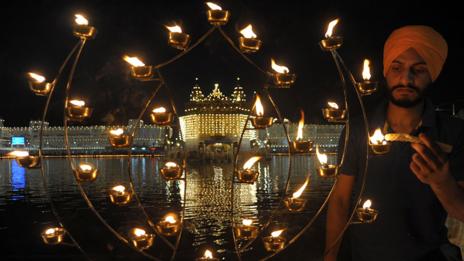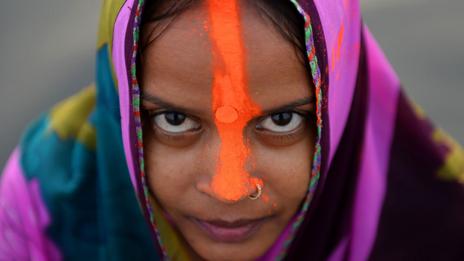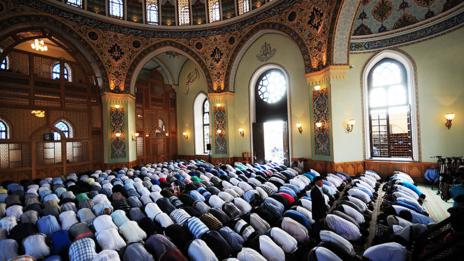
Millions of people across the world believe life definitely ends at death, that there is no God, afterlife or divine plan – a notion that is gaining momentum every passing day. In fact, in some parts of the world, openly acknowledged atheism has never been more popular than it is today.
“There’s absolutely more atheists around today than ever before, both in sheer numbers and as a percentage of humanity,” says Phil Zuckerman, a professor of sociology and secular studies at Pitzer College in Claremont, California, and author of Living the Secular Life.

As found by Gallup in one of its surveys, which included over 50,000 people from 57 countries, the number of people claiming to be religious dipped from 77 percent to 68 percent between 2005 and 2011. During the same period, those identifying themselves as atheists rose by 3 percent, thus bringing the total number of adamant nonbelievers in the world to 13 percent.
Even though atheists are far from forming the majority, experts have been trying to understand if the growing figures could serve as a harbinger of the future. Considering global trends, is it possible that religion might someday disappear completely, they ask. Obviously, it is impossible to predict the future; but assessing all the information that is available at the moment, including why religion evolved in the first place and how so many people blindly invest themselves in the phenomenon, could help experts determine, to a certain extent, how humans’ relationship with the divine is likely to play out in the coming years.

While scholars continue to evaluate the complex factors that compel a person or a nation to turn towards atheism, a few commonalities are worth a mention. Part of religion’s appeal is that it provides security to people in a hopeless world. Unsurprisingly, countries that have the highest incidence of atheism also happen to be those that offer their citizens a comparatively higher level of existential stability, apart from excellent economic and government policies.
“Security in society seems to diminish religious belief,” Zuckerman says. “Capitalism, access to technology and education also seems to correlate with a corrosion of religiosity in some populations.”

The United Kingdom, Japan, South Korea, Estonia, Germany, Uruguay, France, the Netherlands and the Czech Republic are all countries where religion played an important role only a century ago but today report some of the lowest incidences of belief in the world. Each of these countries is relatively wealthy and features a low level of inequality while displaying strong social security and exceptional educational systems.
“Basically, people are less scared about what might befall them,” says Quentin Atkinson, a psychologist at the University of Auckland, New Zealand.

However, decline in belief has been setting in across countries that still consider themselves predominantly religious, like Ireland, Jamaica and Brazil for instance.
“Very few societies are more religious today than they were 40 or 50 years ago,” Zuckerman says. “The only exception might be Iran, but that’s tricky because secular people might be hiding their beliefs.”
The United States, however, is an outlier in this regard, considering it is one of the wealthiest countries in the world but also has a high incidence of religiosity. This is the situation despite a Pew Survey stating between 2007 and 2012, the number of Americans who said they are nonbelievers rose from 1.6 percent to 2.4 percent.

Ara Norenzayan, a social psychologist at the University of British Columbia in Vancouver, Canada, and author of ”Big Gods,” believes decline is not the same as disappearance. Existential security, according to her, is a lot more flawed than it appears, as it takes only a moment for everything to change.
“A drunk driver can kill a loved one; a tornado can destroy a town; a doctor can issue a terminal diagnosis. As climate change wreaks havoc on the world in coming years and natural resources potentially grow scarce, then suffering and hardship could fuel religiosity. … People want to escape suffering, but if they can’t get out of it, they want to find meaning,” Norenzayan says. “For some reason, religion seems to give meaning to suffering – much more than any secular ideal or belief that we know of.”

Many scholars are of the opinion that religion was a byproduct of human beings’ cognitive disposition.
Robert McCauley, director of the Center for Mind, Brain and Culture at Emory University in Atlanta, Georgia, and author of ”Why Religion Is Natural and Science Is Not,” says, “Religions are cultural arrangements that evolved to engage and exploit these natural capacities in humans.”
That is why atheists have to fight against a lot of cultural and evolutionary baggage while giving up their innate belief. Norenzayan substantiates McCauley’s point by saying human beings have a tendency to believe that they are part of something larger and their minds constantly crave a purpose and explanation because they are not ready to accept the fact that life is completely futile.
“With education, exposure to science and critical thinking, people might stop trusting their intuitions,” Norenzayan says. “But the intuitions are there.”

Science, on the other hand, a subject that nonbelievers often turn to while understanding the natural world, is not an easy cognitive pill to digest. McCauley says people accept the Earth spins through the day despite them not feeling the sensation themselves and that is exactly how people must embrace the fact that evolution is completely indifferent and that there is no ultimate design despite their intuitions telling them differently. He believes what make matters worse here is that humans generally find it difficult to admit they are wrong.
“Science is cognitively unnatural – it’s difficult,” McCauley says. “Religion, on the other hand, is mostly something we don’t even have to learn because we already know it. … Besides, even the best secular government can’t protect you from everything. … As soon as we found ourselves facing an ecological crisis, a global nuclear war or an impending comet collision, the gods would emerge.”

Justin Barrett, director of the Thrive Center for Human Development at Fuller Theological Seminary in Pasadena, California, and author of ”Born Believers,” says there is evidence that proves religious thought to be the path of least resistance. That is why he believes that even though 20 percent Americans do not affiliate themselves with a church, 68 percent Americans still believe in God and 37 percent describe themselves as spiritual. Even without organized religion, these people believe there is a greater force or being guiding them every day.
“You’d have to fundamentally change something about our humanity to get rid of religion,” he said.
For all these various reasons, experts speculate that religion will probably never completely go away, even if the number of atheists continue to rise.
“Humans need comfort in the face of pain and suffering, and many need to think that there’s something more after this life, that they’re loved by an invisible being,” Zuckerman says. “There will always be people who believe, and I wouldn’t be surprised if they remain the majority.”
Photo Credits: Free Malaysia Today
